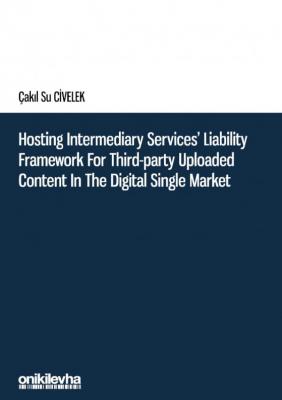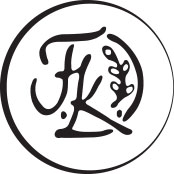Hosting Intermediary Services' Liability Framework for Third-Party Uploaded Content in the Digital Single Market ( CİVELEK )

Over the past decade, hosting intermediary services have become the principal actors in providing the public with access to third party-uploaded copyright-protected content. Their increased role in the digital economy and the impact they have on the spread of copyright-infringing content uploaded by their users rendered the old intermediary liability framework under the E-Commerce Directive (Directive 2000/31/EC) and the InfoSoc Directive (Directive 2001/29/EC) inadequate and created a demand for a new liability framework to address the remuneration-related concerns of copyright holders. Accordingly, the EU adopted the Copyright in the Digital Single Market Directive (Directive (EU) 2019/790) and proposed the Digital Services Act. This research examines whether the Copyright in the Digital Single Market Directive changes the existing EU liability framework applicable to hosting intermediaries and explores the legal consequences that these actors might experience under the new system.(ARKA KAPAKTAN)
Table of Contents
1. Introduction
1.1. Research objective
1.2. Methodology
1.3. Structure of the thesis
1.4. Setting the stage
1.5. Limitations and scope
1.6. Research questions
2. Analysis of the Existing System
2.1. Hosting intermediary liability exemption under Article 14
2.2. Knowledge and awareness
2.3. Hosting vs. communicating to the public
2.4. Reaction of intermediaries and notice-and-takedown mechanism
2.5. General monitoring prohibition
2.6. A shift in the discourse
3. The New Regime
3.1. Online content-sharing service providers - Who are these players?
3.2. Type of liability under Article 17 and the act of communication to the public
3.3. How to not be liable?
3.3.1. Best efforts to obtain an authorisation
3.3.2. Best efforts to prevent upload and re-upload of infringing content
3.4. Right to freedom of expression v. IP rights
3.5. The Proposal for the Digital Services Act
3.5.1. Provisions on intermediary liability regime
3.5.2. Provisions on due diligence obligations
4. How do the old and new regimes compare to each other and interact?
4.1. Was there a need for a harmonized liability regime under the EU framework?
4.2. Type of liability
4.3. The act of communication to the public
4.4. Liability exemptions and general monitoring prohibition
4.5. How do the old and the new regimes interact?
5. Conclusion
- Açıklama
Over the past decade, hosting intermediary services have become the principal actors in providing the public with access to third party-uploaded copyright-protected content. Their increased role in the digital economy and the impact they have on the spread of copyright-infringing content uploaded by their users rendered the old intermediary liability framework under the E-Commerce Directive (Directive 2000/31/EC) and the InfoSoc Directive (Directive 2001/29/EC) inadequate and created a demand for a new liability framework to address the remuneration-related concerns of copyright holders. Accordingly, the EU adopted the Copyright in the Digital Single Market Directive (Directive (EU) 2019/790) and proposed the Digital Services Act. This research examines whether the Copyright in the Digital Single Market Directive changes the existing EU liability framework applicable to hosting intermediaries and explores the legal consequences that these actors might experience under the new system.(ARKA KAPAKTAN)
Table of Contents
1. Introduction
1.1. Research objective
1.2. Methodology
1.3. Structure of the thesis
1.4. Setting the stage
1.5. Limitations and scope
1.6. Research questions
2. Analysis of the Existing System
2.1. Hosting intermediary liability exemption under Article 14
2.2. Knowledge and awareness
2.3. Hosting vs. communicating to the public
2.4. Reaction of intermediaries and notice-and-takedown mechanism
2.5. General monitoring prohibition
2.6. A shift in the discourse
3. The New Regime
3.1. Online content-sharing service providers - Who are these players?
3.2. Type of liability under Article 17 and the act of communication to the public
3.3. How to not be liable?
3.3.1. Best efforts to obtain an authorisation
3.3.2. Best efforts to prevent upload and re-upload of infringing content
3.4. Right to freedom of expression v. IP rights
3.5. The Proposal for the Digital Services Act
3.5.1. Provisions on intermediary liability regime
3.5.2. Provisions on due diligence obligations
4. How do the old and new regimes compare to each other and interact?
4.1. Was there a need for a harmonized liability regime under the EU framework?
4.2. Type of liability
4.3. The act of communication to the public
4.4. Liability exemptions and general monitoring prohibition
4.5. How do the old and the new regimes interact?
5. ConclusionStok Kodu:9786254320910Boyut:16.5x23.5Sayfa Sayısı:68Basım Yeri:İstanbulBaskı:1Basım Tarihi:ocak 2022Kapak Türü:Karton KapakKağıt Türü:1.hamurDili:Türkçe
- Taksit Seçenekleri
- Diğer KartlarTaksit SayısıTaksit tutarıGenel ToplamTek Çekim80,0080,00
- Yorumlar
- Yorum yazBu kitabı henüz kimse eleştirmemiş.











